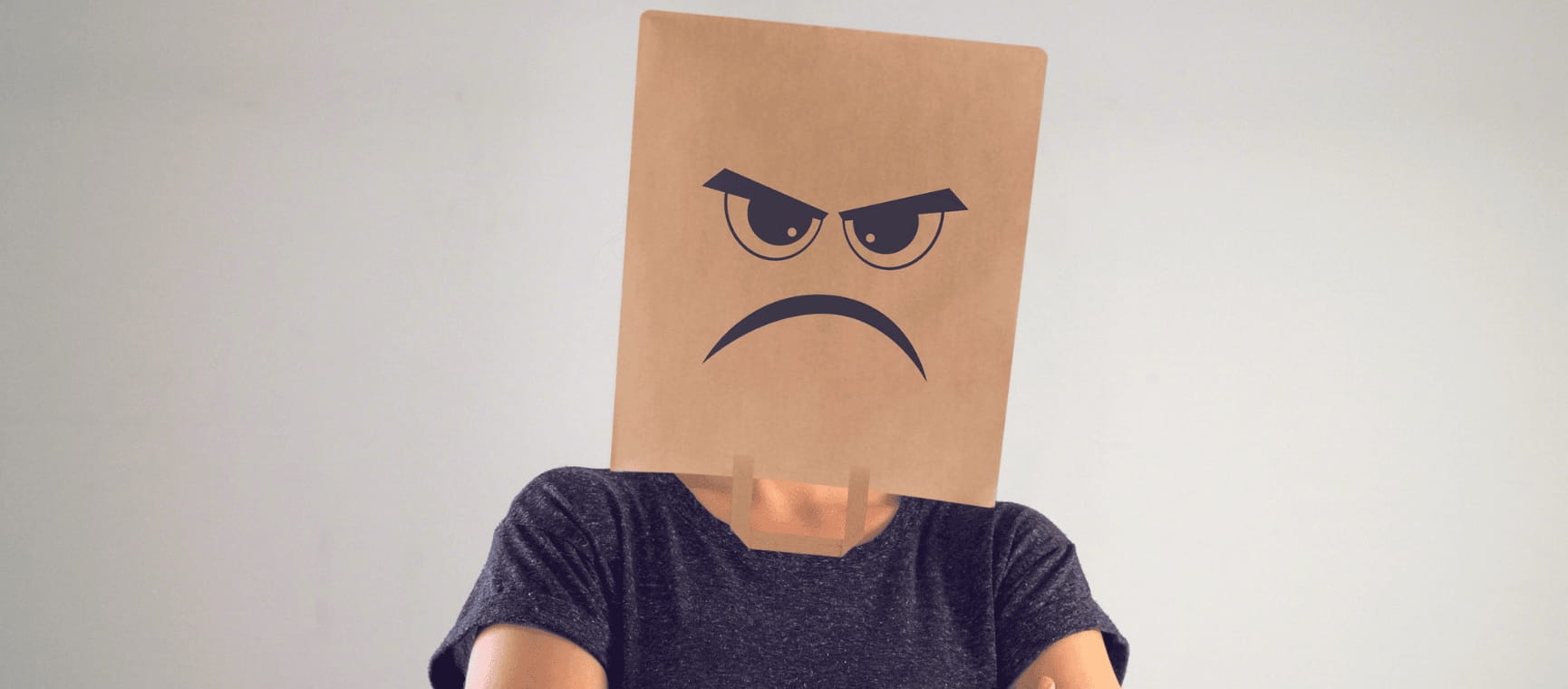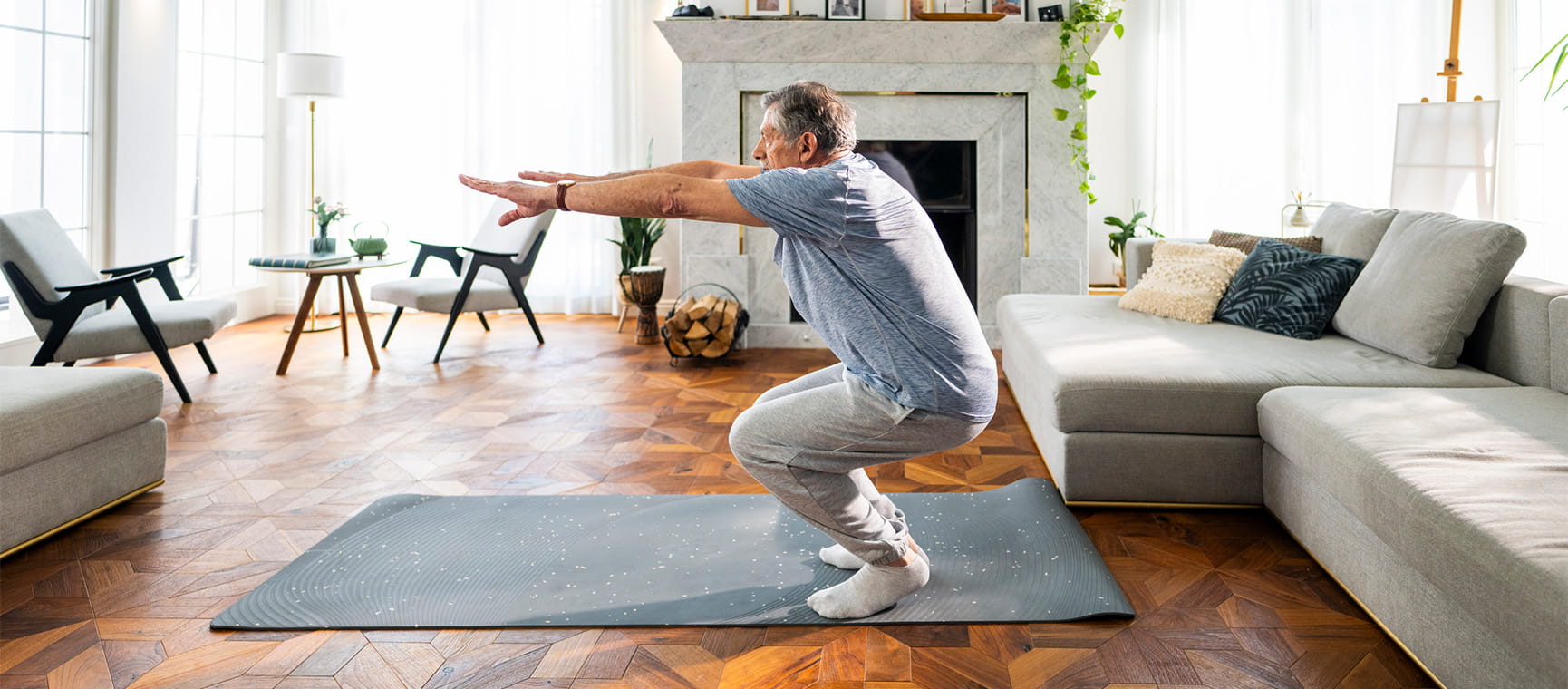The tell-tale signs you’ve become grumpy – and how to cheer yourself up
Worried you’ve morphed into Victor Meldrew? Find out how to battle that bad mood, and what to do if you’re stuck with a grouchy loved one.

Worried you’ve morphed into Victor Meldrew? Find out how to battle that bad mood, and what to do if you’re stuck with a grouchy loved one.

We all have bad days. But what if that heavy grumpy feeling just won’t lift? It might even be manifesting itself in grouchy thoughts and behaviours, often without us realising.
So, what should we be looking out for, if we fear we’ve become a grump? We’ve found out the tell-tale signs and how to change your ways and embrace the brighter side of life.
Author and comedian Gavin Oattes found himself in a similar situation and wrote a book about digging himself out of it, Confidently Lost.
“If you find yourself tutting at clouds, sighing at the happiness in others, or barking at the telly, it’s time to check in,” advises Oattes.
“When irritation becomes your background music, it’s time to re-tune the station.”
It goes without saying that some of us have a half-empty glass by nature, while others are inherently more optimistic.
But whatever our personality DNA, if we’re feeling short-tempered, frustrated and impatient most of the time, it could be time to acknowledge that we might have a case of the grumps, according to best-selling author and consultant geriatrician Dr Lucy Pollock.
“Many of us can find we're in a cycle of negative thoughts, but recognising that it’s happening is a good start in tackling this,” she says. “As is being honest with ourselves about the effect we might be having on people around us.”
Dr Pollock adds that, in some cases, it might be worth talking through those negative emotions with someone outside the family or friendship group: “If you're finding that even small, seemingly unimportant things trigger feelings of rage or cynicism, I'd suggest seeking counselling or therapy to explore why the grumpy emotions are emerging.
“It can help you to learn techniques to put a pause or a ‘firebreak’ between the trigger; that annoying newsreader, for example. And also your response – snapping at someone or similar.”
Is there any truth in some people simply becoming grumpier as they age? Actor Hugh Grant has famously admitted to feeling increasingly petulant in later life, proclaiming anger towards people with rucksacks and mobile phones, along with hating every film he’s ever been in.
And of course, there’s 1990s BBC show One Foot in the Grave’s iconic Victor Meldrew, who epitomised the ‘grumpy old man’ stereotype and his right to a good moan.
Gavin Oattes says there are grounds for the grumps in older age: “We’ve got more stories, more scars and more reasons to be annoyed.
“But we also have more power to choose joy. Life layers on stress, but if we’re not careful, we forget to balance the scales with joy, play, and purpose.”
But Dr Pollock believes that honesty and strong opinions in older age can often be misconstrued for grouchiness.
“In my experience, older people are a bit more likely to speak their mind, for example to call out bad behaviour – but they tend to do this very politely. I think older people often feel confident about their views, and they have experience they can put to good use. That’s not being grumpy.
“However, some older people are definitely badly behaved. Some people have been rather rude all their life and see no reason to change. And any of us can get ratty when we are in pain or haven’t slept well, which are big issues for many older people, and worth discussing with your GP.”

According to a new study by Swiss university ETH Zurich, men become generally more prone to irritability as they age, which is fuelled by a rising feeling of vulnerability. The research suggests this is all down to an increase in ‘disgust sensitivity’, this being a fear of things that might put us at risk, such as unhygienic practices.
Women, on the other hand, tend to experience their ‘disgust sensitivity peak’ during childbearing years.
Oattes offers an alternative explanation: “Men can be more grouchy because they’re often less encouraged to talk about emotions or seek joy intentionally. But grumpiness is an equal-opportunity guest. What matters is who lets it stay for tea!”
And Dr Pollock has a positive spin in defence of the older man: “On the whole they are less grumpy than young men. They’re definitely less likely to get into a fight, less likely to tailgate or cut you up in a car. And they swear a lot less, especially in public, even when they are under pressure.”
But what can we do if we really are in the disgruntled depths? It can be difficult to dig ourselves out of the trenches of irritability, but there are a few achievable things we can all do that might just lighten up our lives a little.
Research has shown that the first thoughts we have when we wake up can set the tone for the day ahead. Known as “penumbral thoughts”, experts say that if these are generally negative then we are likely to be in a bad mood for the rest of the day. We’re all prone to waking up with that sinking feeling about life’s stresses and worries, or even the overwhelm of the never-ending jobs we have to do, or how little sleep we’ve had.
The good news is that it’s possible to force a positive thought or two into our brains when we’re still in bed, setting ourselves a more positive path for the day and dispelling that first grump.
It might take some practice and possibly feel futile initially but it’s worth a try, says Oattes: “Your brain wakes up in ‘default mode’ but you do get to choose the channel. Gratitude, a stretch, a smile, even saying ‘today’s got potential’ can flip the script before your feet hit the floor.”
How you choose to spend your days, and recognising the simple things that help to banish those grumps is also key, says Oattes: “Start small. Joy isn’t a leap, it’s a breadcrumb trail. A walk, a cup of tea, a new hobby, a belly laugh.
"Reconnect with what once lit you up. Neuroplasticity is real – your brain wants you to feel better.”
Dr Pollock adds: “If you are feeling low and grumpy, do one of these three things: do something for yourself, do something for someone else, or go outside.
“However, sometimes grumpy behaviour can stem from depression – why be nice to anyone else when we don’t much like ourselves?
“The first line treatment for depression in older people is companionship – packing our grumpy self away and taking a brave step to meet new people can be a real game changer.”

Navigating life with a permanently pessimistic friend or family member can be exhausting and leave us feeling drained of our own positivity reserves.
“If you're stuck with someone who is constantly negative and grumpy, it can feel very hard to find a solution,” says Dr Pollock. “First I’d say, be honest. Explain that you’ve noticed the grumpiness and are worried about it. See if you can work out together what the cause is.
“Be open with friends. They’re likely to be sympathetic and may have ideas for how to tackle it. If it’s truly relentless, try to arrange time apart – getting to a club or a social event once or twice a week gives you a bit of time off.”
Oattes advises against battling with the negativity of those close to us. “Don’t fight the grump, shine a light,” he says. “Gently remind them of who they are at their best. Offer joy without pressure. Connection, not correction, is the way through. And look after your energy too.”
For those who are feeling grumpy about being grumpy, Dr Pollock has some cheer to leave you with: “There are upsides. Sometimes we can convert grumpiness into action. If you find litter drives you mad, you might set up a litter-picking group, for example.
“And is there anything more satisfying than having a good moan about the state of the world with a couple of mates in the pub?”
(Hero image credit: Getty Images)
Dr Lucy Pollock is the author of The Book About Getting Older and The Golden Rule: Lessons in Living from a Doctor of Ageing, both published by Penguin.
Emma Lazenby is entering her third decade in journalism, after starting her reporting career on the Yorkshire Evening Post as a teenager.
She’s loved every minute, with contributions to the Sun, Daily Telegraph and women’s magazines, between stints as a Lifestyle Editor for the Press Association and TV Producer for GMTV and Steph’s Packed Lunch.
Emma has covered mental and physical health, charity campaigns, fashion and beauty, travel, food and parenting with celebrity and inspirational real-life interviews featuring heavily.


Your chance to explore Ireland on board Spirit of Discovery on a cruise worth £4,317pp.

Get 3 months free, plus a £125 Totally Rewards Wellness Gift Card when you start a new policy by the end of 19 February 2026. T&Cs apply.
Underwritten by Bupa Insurance Limited.

Are you retiring at the wrong age? The best age to retire for your body, brain, happiness and pocket.


Everything you need to know about the lung infection, and how you could be ill with “walking” pneumonia without realising it.

Strong calves for a strong mind: how they support our circulation and brain health, with easy moves to strengthen yours at home.


Our GP Dr Mark Porter explains what can cause itchy skin, which is a common problem as we get older.

Worried you’ve morphed into Victor Meldrew? Find out how to battle that bad mood, and what to do if you’re stuck with a grouchy loved one.

The benefits of heat and cold therapy, and how Nordic bathing won over our nervous writer.

Here’s how to spot the symptoms of heat disease and reduce your danger.


The NHS winter vaccination campaign kicks off next week. Here’s the lowdown on what you need to book.

Pilates for back pain – what to do if you are suffering, and five gentle exercises that could help.

Dizziness or vertigo: a sensation of spinning, can stop us doing everyday things for fear of falling. Try these tips to stop feeling dizzy


You don’t have to put up with bladder leaks. We try out the latest pelvic floor gadgets for men and women.

Cataracts are a normal part of ageing. Learn how to spot the signs – and when it’s time to consider surgery.